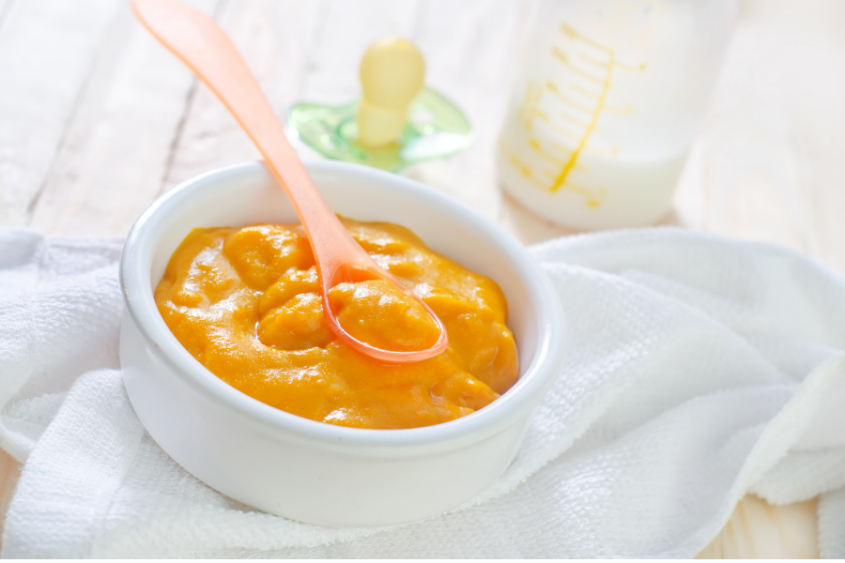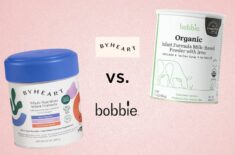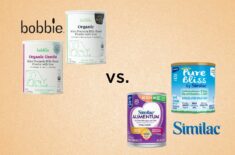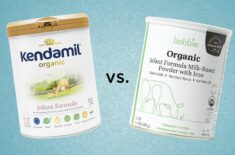Overview
Organic baby foods from Yumi may be a healthy choice to try for your little one, especially considering that as much as 95% of commercial ones could be tainted with high levels of heavy metals. (1)
What makes Yumi meal delivery different from the other baby food brands? What are the pros & cons of baby food delivery? How can you cancel Yumi if you no longer like or need their service? Find your answers below.
How Do I Cancel Yumi?
You can cancel your Yumi subscription after your first order.
Cancel Yumi Using Website Account
- Log in to your account at helloyumi.com
- Go to “My Account.”
- Follow the instructions to modify or cancel your subscription.
Cancel Yumi Through Email
- Another way to cancel your Yumi subscription is to email the Customer Experience Team at [email protected].
Note that Yumi locks in all orders one week before they are delivered.
Yumi’s Cancellation Policy
Can you pause your Yumi subscription?
Take note of the following terms in your plan’s cancellation policy:
- You can’t cancel your first order.
- If you still attempt to cancel a subscription before receiving your first order, it may or may not be canceled. Any related amounts you paid may or may not be refunded to you, depending on certain factors such as the status of the products in Yumi’s production process or any promotions applied.
- Yumi will notify you whether your cancellation request is approved or denied and whether they’ll refund you or not.
- For subsequent orders, you should pause or cancel your subscription before your next order’s due date to get the full refund for advance payments.
- The charge date is usually six or seven days before the expected delivery, but it can vary.
- Yumi emails customers about their deadline every week (if you’re on a Weekly Plan) or every four weeks (if you’re on a Monthly Plan).
- Make sure to make the changes before the cut-off date. If they don’t receive your cancellation request within that period, you’ll still be charged for that week, and the products are sent to your home.
- Any modification will not affect an active order that you have already been charged.
- Cancellations or modifications will take effect immediately following production and delivery of any order that you’ve already been charged. All amounts charged or paid before the modification or cancellation will not be refunded.
What’s Yumi Baby Food & What Makes It Different?
According to co-founders Angela Sutherland and Evelyn Rusli, they created Yumi after realizing that the shelf-stable options from grocery stores weren’t the healthiest. These brands have years-long expiration dates and may contain high fruit sugar levels but are often lower in nutrition. (2)
So, they founded the company intending to provide babies and toddlers with nutritious foods for each developmental milestone. (2)
A team of pediatricians, nutritionists, and chefs work together to create menus backed by science to meet your child’s nutritional needs. These baby foods are made with certified organic ingredients. (2)
Eating organic foods may help reduce the risks of obesity, congenital problems, allergic sensitization (sensitivity to certain allergens), and some types of cancers such as non-Hodgkin lymphoma. (3)(4)
Yumi meals may include superfoods like quinoa, chia, blueberries, beets, sweet potatoes, cauliflower, ginger, cinnamon, and flaxseed.
Unlike Little Spoon, Yumi doesn’t create custom-made menus for your baby or pick the foods they think your child will need. Instead, you have full control over what meals to buy for your baby and remove items from your subscription if your child rejects them.
Pros & Cons
Pros
- All Yumi baby food products are made from non-GMO (no genetically modified organisms), certified organic ingredients.
- Pediatricians, chefs, and nutritionists team up to create the menus.
- You can customize your orders to exclude foods that your baby doesn’t like to eat.
- Finger foods are offered for baby-led weaning.
- Foods are made and delivered every week.
- Shipping is free.
- Jars are color-coded to help you stay organized.
- You can freeze the food jars for up to two months.
Cons
- Yumi is prepared in a facility that also processes peanuts. It increases the possibility of cross-contamination.
- Yumi only offers food for infants and toddlers up to two years old; it doesn’t have food for bigger kids.
How Does Yumi Work?
You need to make an account on Yumi’s website (https://helloyumi.com/) before you can order.
You can create a meal plan from the products available for your baby’s stage on your account and pick how many jars you want to be delivered per week.
Pricing/Packages
Yumi baby meal subscriptions start at $3.00, though this varies depending on how many meals you order per week and how often you get billed for the service (weekly or monthly).
You can save more if you get more jars per week and get billed every month instead of every week:
Weekly Billing
- Eight meals a week = $35 per week or $4.38 per meal
- Sixteen meals a week = $65 per week or $4.06 per meal
- Twenty-four meals a week = $90 per week or $3.75 per meal
Monthly Billing
- Eight meals a week = $28 per week or $3.50 per meal
- Sixteen meals a week = $52 per week or $3.25 per meal
- Twenty-four meals a week = $72 per week or $3.00 per meal
Unlike Little Spoon, Yumi doesn’t charge a shipping fee.
Deliveries are done every week to the 48 US continental states. The service is currently unavailable in Hawaii and Alaska.
To keep foods fresh, all your orders are delivered in temperature-controlled boxes with thermal liners made from recycled water bottles. Each box comes with non-toxic, non-caustic ice packs that can keep the foods cool for up to 72 hours during transit.
Why Choose Yumi Baby Food: Key Features
Yumi baby food can be the ideal choice for parents looking for a healthy meal to give their children.
To ensure that your baby gets fresh foods at all times, Yumi delivers your orders every week.
Organic Food for Your Little One
All Yumi products are only produced from certified organic ingredients by CCOF (California Certified Organic Farmers) and USDA (United States Department of Agriculture).
The products are kosher certified (prepared under Jewish law) by Kosher LA.
Meal Flavors Available & Nutrition Facts
Yumi baby meals are offered in stages, depending on your child’s developmental milestones.
Your baby can start on simple, single-ingredient meals and gradually enjoy a variety of flavors. Yumi also offers finger foods, but it doesn’t have food for big kids.
These are some of the menu options or combinations for each stage:
Stage 1: Thinner single-ingredient purees for first-time eaters (first food singles for six months and above)
- Blackberry
- Adzuki Bean
- Lentil
- Blueberry
- Butternut squash
- Dragon fruit
- Peach (seasonal)
- Zucchini
Nutrition values (% Daily Values) for the dragon fruit puree:
- Calories: 70
- Fats: 0g, 0%
- Total carbohydrates: 15g, 16%
- Dietary fibers: 3g
- Proteins: 1g, 9%
- Calcium: 10mg, 4%
- Iron: 2.2mg, 20%
- Magnesium: 32mg, 40%
- Potassium: 60mg, 10%
- Vitamin C: 23mg, 45%
- Vitamin D: 0mg, 0%
- Zinc: 15.9mg, 530%
Stage 2: Thicker one-ingredient purees (graduated singles for six months and above)
- Apple
- Beet
- Kabocha Squash
- Pear
- Kale
- Pumpkin
- Black beans
- Broccoli
- Carrot
- Cauliflower
- Japanese sweet potato
- Kidney bean
- Lentils
- Mango
- Pea (seasonal)
- Purple sweet potato
- Raspberry
Nutrition values (% Daily Values) for the mango puree:
- Calories:120
- Fats: 1g, 3%
- Total carbohydrates: 30g, 32%
- Dietary fibers: 3g
- Proteins: 2g, 18%
- Calcium: 20mg, 8%
- Iron: 0.3mg, 2%
- Potassium: 330mg, 50%
Stage 3: Textured two-ingredient purees with grains or seeds for babies ready to graduate from single ingredients (duos for seven months and above)
- Adzuki bean and pumpkin
- Broccoli and pear
- Carrot and raspberry
- Chickpea and carrot
- Butternut squash and pear
- Dragon fruit and pear
- Pea and Japanese sweet potato
- Purple sweet potato and blueberry
- Zucchini and split pea
Nutrition values (% Daily Values) for the carrot and raspberry puree:
- Calories: 60
- Fats: 0.5g, 1%
- Total carbohydrates: 13g, 5%
- Dietary fibers: 6g, 21%
- Proteins: 1g
- Calcium: 2%
- Folate: 6%
- Iron: 4%
- Potassium: 6%
- Vitamin A: 350%
Stage 4: Smooth puree with multiple ingredients (mashable food for eight months and above)
- Apple pie (apple, coconut milk, white bean, Japanese sweet potato, dates, cinnamon, and nutmeg)
- Cauliflower soup (Japanese sweet potato, cauliflower, coconut milk, onions, garlic, nutritional yeast, thyme, and rosemary)
- Coconut cream pie (coconut milk, white beans, vanilla, cinnamon, Japanese sweet potato, nutmeg, and ginger)
- Harvest squash apple soup (apple, butternut squash, coconut milk, nutmeg, and ginger)
- Minty green pea soup (rutabaga, cauliflower, pea, nutritional yeast, mint, and parsley)
- Mulligatawny soup (lentil, carrot, chickpea, coconut milk, apple, turmeric, ginger, and curry)
- Pat juk (apple, adzuki bean, Japanese sweet potato, dates, and cinnamon)
- Pumpkin pie (pumpkin, apple, Japanese sweet potato, flaxseed, vanilla, coconut milk, cinnamon, nutmeg, and ginger)
- Ratatouille (white bean, red bell pepper, yellow squash, zucchini, tomato, sweet potato, pear, and kale)
- Spiced pear (Japanese sweet potato, pear, coconut milk, cinnamon, and nutmeg)
- Split pea soup (sweet potato, carrot, split pea, apple, and ginger)
- Strawberry basil pie (strawberry, white bean, Japanese sweet potato, coconut milk, and basil)
- Sweet potato cheesecake (adzuki bean, Japanese sweet potato, coconut milk, beet, dates, chia seed, vanilla, and turmeric)
- Sweet potato carrot soup (carrot, broccoli, sweet potato, butternut squash, and nutritional yeast)
- Triple berry pie (Japanese sweet potato, coconut milk, raspberry, blackberry, blueberry, white bean, and cinnamon)
Nutrition values (% Daily Values) for the strawberry basil pie:
- Calories: 130
- Fats: 7g, 23%
- Total carbohydrates: 16g, 17%
- Dietary fibers: 4g
- Proteins: 3g, 27%
- Calcium: 40mg, 15%
- Iron: 1.2mg, 10%
- Potassium: 370mg, 50%
Stage 5: Textured multi-ingredient puree with grains and seeds (mashable food for nine months and above)
- Apricot crumble (apricot, banana, buckwheat, turmeric, cinnamon, dates, ginger, and clove)
- Bell pepper apple bowl (apple, sweet potato, red bell pepper, chard, and quinoa)
- Blueberry chia pudding (blueberry, purple sweet potato, quinoa, coconut milk, chia seed, banana, and dates)
- Broccoli mash bowl (apricot, sweet potato, amaranth, broccoli, and flaxseed)
- Coconut amaranth pudding (Japanese sweet potato, butternut squash, amaranth, apple, coconut milk, and Vanilla)
- Kale pear quinoa bowl (kale, white bean, quinoa, and pear)
- Pear raspberry chia pudding (quinoa, raspberry, coconut milk, pear, banana, chia seed, and dates)
- Polenta mushroom bolognese (polenta, tomato, mushroom, carrot, onions, tomato paste, parsley, oregano, garlic, and nutritional yeast)
Nutrition values (% Daily Values) for the polenta mushroom bolognese:
- Calories: 45
- Fats: 0g, 0%
- Total carbohydrates: 9g, 9%
- Dietary fibers: 2g
- Proteins: 2g, 18%
- Calcium: 15mg, 6%
- Iron: 0.6mg, 6%
- Potassium: 250mg, 35%
Stage 6: Small pieces of whole food that can be pinched and smashed (pinchable foods for 10+ months)
- Beet chickpea combo (beet, chickpea, apple, mint, lentil, lemon juice, and garlic)
- Black bean sweet potato combo (black bean, sweet potato, cinnamon, apple, and cumin)
- Carrot sweet potato combo (butternut squash, sweet potato, carrot, broccoli, and nutritional yeast)
- Coconut pea carrot combo (pea, quinoa, carrot, coconut milk, onion, cumin, and bay leaf)
- Root medley combo (purple sweet potato, butternut squash, apple, coconut milk, rosemary, thyme, oregano, vanilla, cinnamon, and nutmeg)
- Squash quinoa combo (butternut squash, kale, quinoa, flaxseed, nutritional yeast, and spirulina)
Nutrition values (% Daily Values) for the coconut pea carrot combo:
- Calories: 100
- Fats: 3g, 10%
- Total carbohydrates: 16g, 17%
- Dietary fibers: 5g
- Proteins: 4g, 36%
- Calcium: 35mg, 15%
- Iron: 1.4mg, 15%
- Potassium: 330mg, 45%
Stage 7: Finger foods in nutrient-dense bites (bites for 11+ months)
- Banana bread bite (butternut squash, banana, sorghum flour, quinoa flour, date, vanilla, flaxseed, banana water, coconut oil, cinnamon, sunflower oil, and lemon zest)
- Beet burger bite (gluten-free oat flour, mustard, coriander or cilantro, apple cider vinegar, black pepper, cumin, garlic, onion, beet, prune, quinoa, and black bean)
- Broccoli lentil bite (broccoli, lemon juice, flaxseed, ras el hanout spice, dates, chickpea flour, onion, and lentil)
- Butternut squash bite (spinach, butternut squash, chickpea flour, flaxseed, cumin, coriander or cilantro, cinnamon, and clove)
- Carrot spinach millet bite (carrot, onion, flaxseed, curry, garlic, cilantro, oat, spinach, and millet)
- Chickpea Panisse bite (sumac, black pepper, lemon oil, garlic, chickpea, and chickpea flour)
- Cubano bite (green banana flour, sweet potato, garlic, black bean, spinach, and banana)
- Pizza bite (mushroom, basil, tomato powder, tomato paste, flaxseed, garlic, gluten-free oat flour, gluten-free oats, lentil, thyme, and onion)
- Southwest bite (quinoa, sweet potato, black bean, potato flour, corn, and sunflower oil)
- Sweet potato latke bite (kale, sweet potato, potato, onion, chia seed, flaxseed, black pepper, and sunflower oil)
- Veggie meatball bite (quinoa, black bean, tomato, onion, tomato paste, garlic, basil, parsley, oregano, nutritional yeast, and flaxseed
Nutrition values (% Daily Values) for the carrot spinach millet bite:
- Calories: 80
- Fats: 2.5g, 6%
- Total carbohydrates: 12g, 8%
- Dietary fibers: 3g
- Proteins: 3g
- Calcium: 43mg, 6%
- Iron: 1mg, 15%
- Potassium: 155mg, 6%
Stage 8: Nutritious snacks (for 11+ months)
- Beet puffs (sorghum flour, beet powder, and coconut oil)
- Cauliflower puffs (sorghum flour, cauliflower powder, and sunflower oil)
- Mixed berry fruit leathers (apple, strawberry, raspberry, blueberry, and sweet potato)
- Strawberry fruit leathers (apple, strawberry, sweet potato, and lemon juice concentrate)
- Mango fruit leathers (apple, mango, pumpkin, and lemon juice concentrate)
Nutrition values (in % Daily Values) for the beet puffs:
- Calories: 80
- Fats: 2 g, 3%
- Total carbohydrates: 14 g, 5%
- Dietary fibers: 3 g, 11%
- Proteins: 2 g
- Calcium: 4%
- Potassium: 6%
- Iron: 6%
- Dietary fiber: 11%
Yumi Bestsellers
Yumi features the following special blends from their Chef Series:
- Pat juk (sweet red bean porridge, stage 4) by Chef Beverly Kim
- Sweet potato cheesecake (stage 4) by Chef Malcolm Livingston II
- Polenta mushroom bolognese (stage 5) by Chef Jon Shook & Chef Vinny Dotolo
- Banana bread bite (stage 7) by Chef Malcolm Livingston II
- Broccoli lentil bite (stage 7) by Chef Beverly Kim
All Yumi baby foods, including applesauce, are free from added sugars. Instead, dried powder from the Peruvian fruit lucuma is used as a low-sugar sweetener; it’s rich in vitamins, minerals, and fiber.
Allergens and Preferences
All Yumi meals (baby purees and finger foods) are vegan-friendly and vegetarian meals. They’re free from allergens from the “Big Eight”:
- Eggs
- Milk
- Peanuts
- Tree nuts
- Crustacean shellfish
- Fish
- Wheat
- Soy
Food Safety
All Yumi baby meal products are free from:
- GMOs.
- Additives.
- Added sugars.
- Artificial flavors.
- Fillers.
- Food coloring.
- Hormones.
- Heavy metals.
- Gluten.
- Preservatives.
All baby foods are prepared every week using fresh, whole, and organic ingredients. The meal preparation methods are similar to those you use at home: boiling, steaming, blending, and baking.
For added food safety, all products are made in small batches. Light processing is used to kill bacteria while still keeping the food’s flavor and nutrients.
Food-Safe Containers
All the meals are placed in 4-oz BPS and BPA-free recyclable and reusable jars.
BPA (Bisphenol-A) is a toxic material used for plastic manufacturing, while BPS (Bisphenol-S) is another toxic material used for linings in some canned foods and beverages.
Color-Coded Jars
It might be easier for you to keep track of the meals from any given week because the jars are color-coded, with the color changed every week.
Meals can last seven days in the fridge or two months in the freezer.
But opened food jars should be consumed within 24 hours after opening. Discard any leftovers even if there’s still a lot of food. It can pose a higher risk of causing food poisoning.
Write the date on the lid before freezing the jar. It can help you keep track of expiry dates.
Note that once you defrost a jar, you shouldn’t freeze it again. The contents should be consumed within 24 hours.
Introducing Your Child to Solid Foods
Babies can start eating solids when they are six months old.
Some parents might start introducing solids when their children are four months old, but make sure to consult with your pediatrician if you plan to start earlier than six months.
Always start with a single-ingredient puree.
Yumi stages 1 and 2 both have single ingredients. But it might be best to start with stage 1 because the purees are thinner. You can gradually move to stage 2.
Each jar contains around one to two servings, depending on your baby’s appetite or interest in food at this stage.
Because they only know the taste of milk, it may take time before your baby likes the taste of solid food. They might spit the food out, make faces, or only eat small amounts. It doesn’t mean that your baby hates the food they’re given.
Starting on solids is a new sensory experience for your child. It might take a few more exposures before your baby begins to recognize and enjoy the new food. So, just keep trying.
You can gradually introduce your child’s palate to more foods and flavors as they get used to eating.
Three-Day Rule
To help rule out the causes of potential allergic reactions, some pediatricians recommend the Three-Day Rule for introducing solids.
Under this rule, you only give your child food with the same main ingredient for three days. It can help you determine if your child is allergic to a certain food item.
Because Yumi products don’t have allergens from the Big Eight, they encourage introducing your child to more varieties of purees and frequent exposure to new foods, but again, always consult with your pediatrician.
When to Feed Your Baby
Yumi recommends giving your baby solid food about an hour before or after a milk feed. It applies to both breast milk and formula.
At this time, your baby isn’t likely too hungry to be impatient, and there’s also some room in their small tummy.
By the time your baby is 10 or 11 months old, they may be ready for finger foods.
Yumi offers pinchable or mashable foods from stage 6 to assist in baby-led weaning. Nutrient-dense bites and puffs are offered at stages 7 and 8.
At this point, they can begin following your regular mealtime schedule.
Personalized Dietitian Advice
Under the milestones program, Yumi offers five free personalized dietitian advice with nutritional coaching sessions via SMS.
Each shipment also comes with special pointers or tips about your child’s developmental stages and milestones. You can also get advice on different feeding stages, including determining if your child is ready for baby-led weaning.
FAQs About Yumi & Baby Foods
Are Yumi Baby Foods Safe?
Yumi sources all ingredients from trusted Non-GMO Project Verified and USDA Certified Organic farms to prepare fresh baby food and healthy meals. In addition, regular tests for heavy metals are done on both ingredients and finished products.
Yumi products have no allergens from the Big Eight. However, the baby foods are produced in a facility that processes peanuts. It might increase the risk for cross-contamination even though Yumi assures parents that all their baby foods are safe and free of allergens.
Are Organic Baby Foods Healthier And Better?
Organic foods are those that are produced naturally, without the use of pesticides, insecticides, artificial growth hormones, GMOs (genetically modified organisms), and other harmful synthetic chemicals (artificial sweeteners, flavoring, preservatives, or coloring).
These organic products may have higher levels of essential nutrients and antioxidants than those grown using conventional agricultural methods. (5)
Eating organic foods may also help reduce the risks of certain medical conditions: (3)(4)
- Obesity
- Congenital problems
- Allergic sensitization (sensitivity to certain allergens)
- Some types of cancers such as non-Hodgkin lymphoma
For What Ages Are Yumi Products?
Like other solid foods, Yumi is best for babies who are at least six months old. But you may start at an earlier age (four or five months) with the approval of your baby’s pediatrician.
Yumi offers different foods designed for toddlers and kids up to two years old.
Can I Heat Yumi Baby Foods?
Yes. You can heat Yumi foods, but you can also opt to serve these at room temperature.
The meals can also be served fresh from delivery because they’re not frozen, just chilled. But many parents prefer warming the food before giving it to their babies.
Can I Put Yumi Jars In The Microwave or Dishwasher?
No. You can’t use the jars in the microwave or put them in the dishwasher. Make sure to transfer the contents to a heat-safe, microwavable container before heating.
Can I Freeze Yumi Baby Foods?
Yes. Make sure to remove the seal before freezing the jar. You can write the date on the lid to keep track of the baby food’s expiration date.
Yumi baby meals can last for two months in the freezer.
How Long Is Yumi Good For In Fridge?
It can last for seven days in the fridge
What’s Yumi’s Shipping Policy?
You’re free to change your order’s delivery address, but make sure you change the address on your account before the cut-off time (every Tuesday at 11:59 PM PST) for orders a week before your delivery.
What’s Yumi’s Return Policy?
Yumi food products are perishable, so they don’t accept returns.
How Do I Contact Yumi?
Here are some ways to contact the company for questions and other concerns:
- Phone Number: 415-879-9864 from 9 AM to 6 PM PST on Mondays to Fridays
- Text: 213-263-4722
- Email: [email protected]
What’s A Baby Food Delivery Service?
In some places such as the US, you can order freshly prepared baby meals delivered to your doorstep on a subscription basis. Different baby food delivery services have different policies and menu options.
Some services only cater to babies and younger toddlers, while others (such as Little Spoon) also provide options for big kids up to 10 years old.
Yumi makes deliveries every week but only has food for babies and toddlers up to two years old.
Yumi Vs. Homemade Food
Some parents prefer to make baby food at home.
But baby food delivery or subscription such as Yumi can be a time-saver for moms.
Yumi can help provide your baby with non-GMO, certified organic foods with nutrients they need for different stages of development.
Pediatricians also suggest letting your child taste different foods. It can acquaint their palate with different flavors and instill good eating habits that help them avoid becoming picky eaters.
Yumi can also help you introduce a wide variety of foods (with different flavors and textures), especially ones that aren’t freshly available in your locality.
Alternatives to Yumi
Here are other companies that also make baby foods:
- Serenity Kids
- Cerebelly
- Once Upon A Farm
- Amara
Baby Food Safety Reports
Given recent discoveries that major baby food retailers are selling tainted and toxic products for babies, many parents are more cautious than ever about the food quality.
Alarming findings from the Healthy Babies Better Future study in 2019 showed that: (1)
- As high as 94% of commercial baby foods can have lead
- As much as 73% may contain arsenic
- Up to 26% of baby foods can have measurable amounts of all four heavy metals (lead, mercury, arsenic, and cadmium) in one container.
Recent Congressional reports also showed that popular companies have baby food products with alarming levels of heavy metals: (6)
- Beech-Nut used ingredients with as high as 913.4 ppb arsenic (the maximum limit is 100 ppb or parts per billion) and 886.9 ppb lead (the maximum limit is 5 ppb). (6)
- Hain (Earth’s Best Organic) used ingredients with 309 ppb arsenic, 352 ppb lead, and up to 260 ppb cadmium (the limit is 5 ppb). (6)
- Nurture (Baby Food Recall and HappyTOT) used ingredients with 180 ppb inorganic arsenic and sold baby food products with 641 ppb lead. (6)
- Gerber doesn’t test for mercury, but used ingredients with over 90 ppb inorganic arsenic, over 20 ppb lead, and up to 87 ppb cadmium. (6)
But none of these brands issued any baby food recall over the safety reports, despite facing several lawsuits from furious parents who felt betrayed that the companies they trusted may have knowingly given tainted products to their babies. (7)(8)
Now more than ever we need trustworthy and responsible food makers to take center stage and help keep our families fed, nourished, and safe.
REFERENCES
(1) https://www.healthybabyfood.org/sites/healthybabyfoods.org/files/2019-10/BabyFoodReport_FULLREPORT_ENGLISH_R5b.pdf
(2) https://helloyumi.com/about/
(3) https://www.ncbi.nlm.nih.gov/pmc/articles/PMC7019963/
(4) https://www.ncbi.nlm.nih.gov/pmc/articles/PMC6583612/
(5) https://pubmed.ncbi.nlm.nih.gov/21929333/
(6) https://oversight.house.gov/sites/democrats.oversight.house.gov/files/2021-02-04%20ECP%20Baby%20Food%20Staff%20Report.pdf
(7) https://oversight.house.gov/sites/democrats.oversight.house.gov/files/ECP%20Second%20Baby%20Food%20Report%209.29.21%20FINAL.pdf
(8) https://www.foodsafetynews.com/2021/06/lawsuits-piling-up-against-baby-food-firms-over-potential-damage-to-infant-brain-development/












